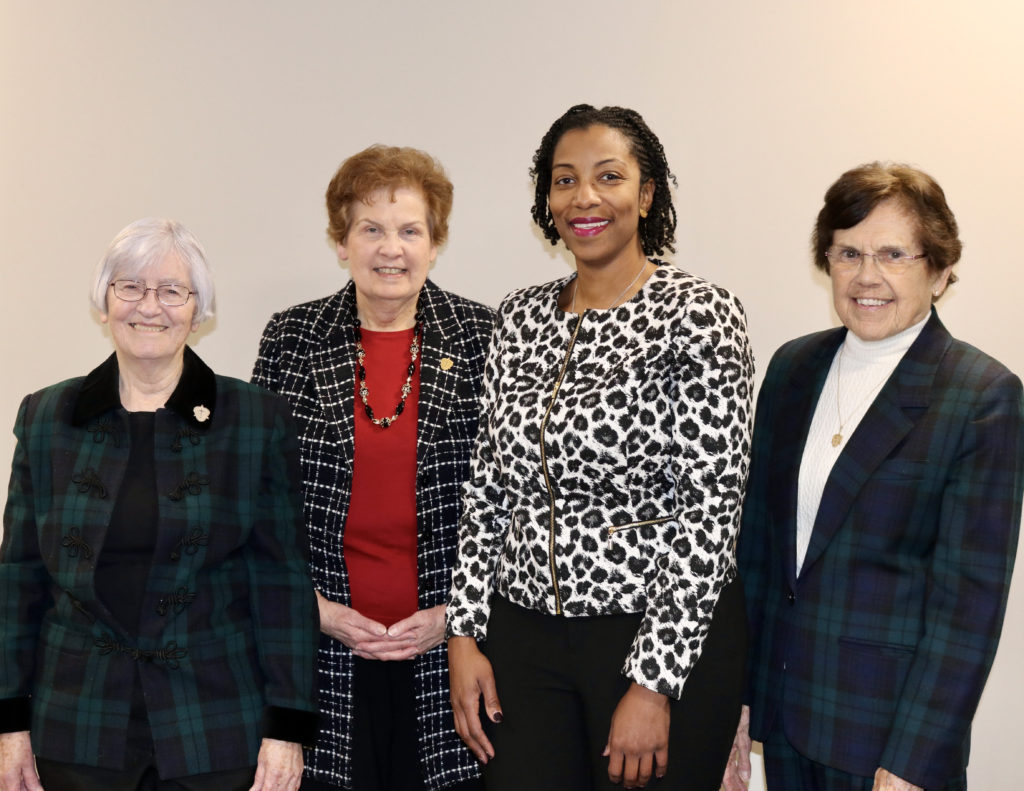As our world seeks racial justice and equality, the Sisters of the Society of the Holy Child Jesus have reflected on Society’s historical role and their own modern-day complicity with systemic racism and inequality. Like many religious communities, organizations, and individuals, the Holy Child Sisters continue examining their hearts, minds, and actions to more clearly identify and thereby reconcile their sinfulness.
The Society of the Holy Child Jesus was founded by Venerable Cornelia Connelly in 1846 in Derby, England, 13 years after the United Kingdom’s Slavery Abolition Act. In 1862, three years before slavery was abolished in the United States, Cornelia sent Sisters from England to America. In 1930, the Society expanded its ministry to West Africa, and in 1963, the first African member of the Society entered the novitiate. To date, the Sisters have found no evidence that the Society supported or participated in the enslavement of people.

The Sisters of the Holy Child Jesus acknowledge and have publicly documented that Cornelia’s husband, Pierce, was given two enslaved people – Phoebe Grayson and her daughter Sarah (Sally) Gough – while living in Natchez, Mississippi, and serving as Episcopalian rector. Phoebe and Sally were a “gift” from one of Pierce’s sponsors, Dr. Newton Mercer, after Cornelia delivered their first-born son in 1832. Pierce and Cornelia named their son Mercer, in honor of Dr. Mercer. In 1842, when the Connellys were living in Grand Coteau, Louisiana, Pierce decided to become a Roman Catholic priest and move to Rome, Italy. He sold or transferred ownership of Phoebe and Sally to the neighboring Jesuit College, where Sally’s husband, Ignatius, was enslaved.
In 2018, Rosemont College, located in a suburb of Philadelphia, Pennsylvania, and founded in 1921 by the Sisters of the Holy Child Jesus, established a commission to research the College’s history with enslaved people. The commission found “no concrete evidence of the impact of slavery on Rosemont College.” The commission confirmed the Society’s published findings that Pierce was given and had sold or transferred ownership of enslaved people.
With deep sadness and remorse, the Society of the Holy Child Jesus believes that the Connellys were blind to the sin of racism. The Sisters recognize that Cornelia’s early life led her in directions that were often challenging and sometimes difficult to reconcile. When Cornelia founded the Society, she stressed the importance of honoring the dignity and uniqueness of every person. This reverence and respect for all individuals remains the hallmark of her educational legacy and is carried forward by the Sisters today as they continue to “meet the wants of the age” and help those in need.
The Sisters of the Holy Child Jesus stand in solidarity with all who work to dismantle systemic racism, including in our Holy Child schools and ministries. We reaffirm our commitment to creating a more just and harmonious world through our actions and with reverence for all.

